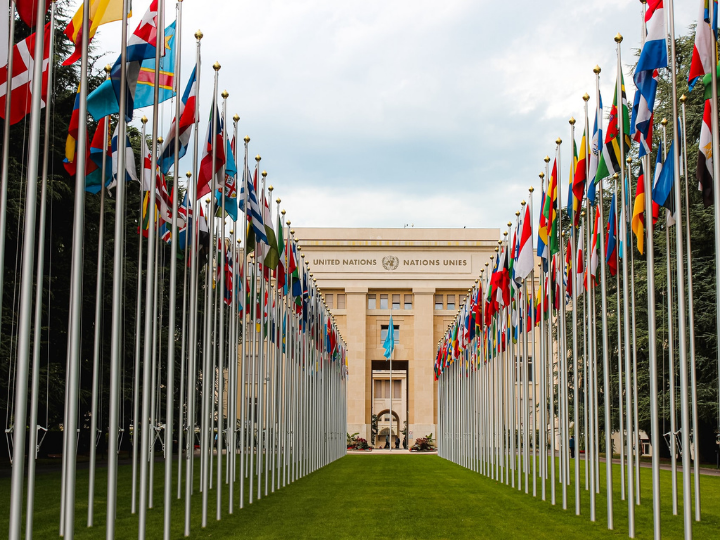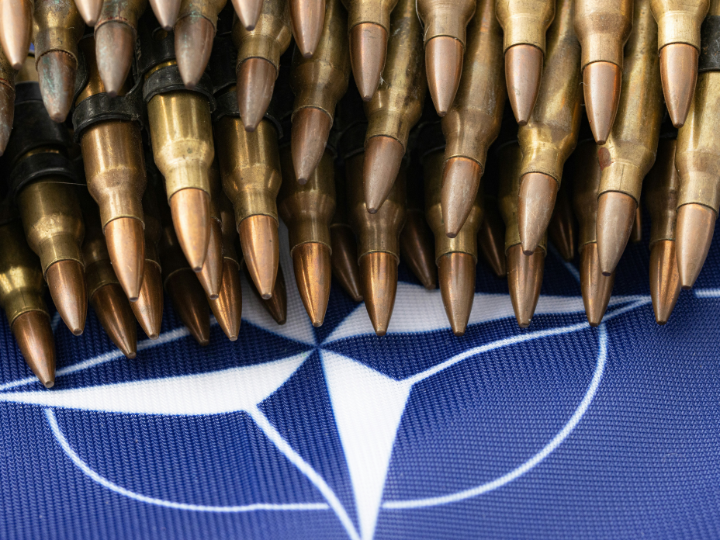by Judy Dempsey*
RUDRA CHAUDHURI/ DIRECTOR OF CARNEGIE INDIA
The world was divided prior to Russia’s unjustifiable attempts to invade Ukraine. From the outset, it may well appear that these divisions have been further sharpened. In the case of India, the geopolitical effects of the current crisis both divide India from and unite it with nations in two geopolitical theaters: Europe and the Indo-Pacific.
As far as Russia’s actions in Europe are concerned, the Indian position is as clear as daylight: it will not unite with other like-minded nations to publicly condemn Russia’s unforgiving advance. To be sure, India has abstained from every vote associated with the invasion at the United Nations Security Council and the General Assembly.
The primary rationale is straightforward: its position is directly connected to the high degree of military dependence on Russia. This position is informed by self-interest, national security, and the fact that the People’s Liberation Army remain camped on India’s side of the so-called Line of Actual Control.
Yet, in the Indo-Pacific, there is every likelihood that India will unite further with partners from Europe, the United Kingdom, and the United States. China is the long-term threat in this theater. It drives unity.
CHIPO DENDERE/ ASSISTANT PROFESSOR OF AFRICANA STUDIES AT WELLESLEY COLLEGE, USA
The Russian war on Ukraine has laid bare some alliances that we already knew existed, such as the few countries that voted with Russia at the United Nations.
However, it has also complicated relations particularly between the West and the more than thirty-five non-Western nations that abstained. Many, including South Africa, are caught between their commitment to democracy and old alliances with Russia during the struggle to end apartheid.
Social media engagement about the war in Ukraine has also revealed frustrations that others have with the way that other victims of war—refugees from the Global South—have been treated.
Shortly after the war started, Western journalists who just a year ago downplayed the crisis for Afghanistan families took to extremes to explain why the world should care about Ukraine. The emphasis by journalists and Western politicians on the whiteness and uniqueness of Ukrainians undermined the sympathy and solidarity of many non-Europeans who have also experienced war and been victims of international bullies.
AMR HAMZAWY/ DIRECTOR OF THE CARNEGIE MIDDLE EAST PROGRAM
The Cold War between the United States and the former Soviet Union divided in the second half of the twentieth century the world in three blocks: the West, the East, and the Non-Aligned Movement. Russia’s war on Ukraine is dividing in the first half of the twenty-first century the world anew and once again in three blocks.
The United States and the EU are united in their denouncement of Russia’s war and in their determination to sanction President Vladimir Putin and his ruling establishment for their aggression. Russia and its satellite regimes in Belarus and Syria are denying Ukraine the right to exist as a sovereign nation-state and justifying the invasion evoking Russian security concerns. The rest of the world, including China and India, is declaring its neutrality in war fought on European soil and with European and American weapons.
Unlike the twentieth century’s Cold War, in which Communist-ruled China was an ally of the Soviet Union, in today’s divided world still Communist-ruled China is spearheading the rebirth of neutrality and non-alignment as viable principles in international politics.
Great power China, along with India and several other middle powers in Asia, the Middle East, and Latin America, are using the renewed confrontation between the United States and Russia to push for a multipolar world order that restores international peace and moves away from destructive military adventurism and sanction schemes that harm global trade and cripple global food and energy security.
GABRIELA MESONES ROJO/ EDITOR AT CARACAS CHRONICLES
Currently, I am in Madrid working with Baynana, a bilingual media founded by Syrian refugees. During our editorial meetings, we have had long conversations about Europe’s, especially Spain’s, double standards when it comes to refugees.
It must be noted that we strongly support Spain’s open borders policy toward Ukrainian refugees. In Spain, there has been a quick regularization of Ukrainians, and an effective institutional response for their inclusion in the country.
However, we still see police brutality and severe violence toward migrants and refugees on the southern border, no government answer about the regularization of the 500,000 irregular migrants living in Spain, and migration laws that stigmatize and segregate migrants through often racist parameters.
In this context, Venezuelan migrants still have little to no access to humanitarian asylum and they usually must wait at least three years to regularize, which leaves the Venezuelan community in a vulnerable state.
NICK WESTCOTT/ DIRECTOR OF THE ROYAL AFRICAN SOCIETY AT SOAS UNIVERSITY LONDON
It is important to understand how differently the war in Ukraine is perceived in some other parts of the world.
In Western Europe and in North America, the historical point of reference is inevitably the Second World War; it revives all the old fears about the need to resist dictators who seek to trample on the freedom of their neighbors and launch vicious attacks on the civilian population. To the public in these countries, the comparison seems obvious, and there is a wide measure of consensus behind the governments’ actions.
In Africa and the Middle East, the point of historic reference is the Cold War, during which Russia, then the Soviet Union, often stood up for liberation movements against the Western imperial powers. They tend to see the war as once more the West versus Russia, and many of the old non-aligned instincts kick in. For those who see Western nations as hypocritical, having themselves invaded Iraq and Afghanistan and bombed Libya, this is reason enough to sit on the fence.
What is perhaps less appreciated is that, in doing so, they create the very world they seek to avoid, where great powers make weaker nations into clients or victims, rather than a more egalitarian multilateral system.
MAHA YAHYA/ DIRECTOR OF THE MALCOLM H. KERR CARNEGIE MIDDLE EAST CENTER
Russia’s war on the Ukraine is a clear historic rupture whose outcomes will have different implications for our collective future. However, many of the divides it has triggered are not new. Rather, the war has accentuated and brought to the surface preexisting divisions on the political, economic, and cultural fronts.
Politically, it has pushed many countries to hedge their bets in a post pax Americana world, where concerns about a retrenchment by the United States triggered the search for alternate allies. Nowhere is this more visible than the Middle East, where the United States’ historic allies, Israel, Saudi Arabia, and the United Arab Emirates, neither voiced unequivocal support for Ukraine, nor agreed to increase oil production to address increasing global demand in a context of expanding sanctions on Russia.
Economically, the shockwaves caused by the war are global and are being felt in food security, energy markets, surging inflation, and tightening monetary policies. In a context of uneven recovery from COVID-19, richer countries will likely be able to cushion the impacts of a global recession whereas fragile and debt-ridden countries will not, especially if interest rates were to increase. The UN is currently warning that thirty-five countries are at risk of debt distress this year. This will deepen fundamental inequalities in access to both services and opportunities.
Finally, long-time grievances around double standards between the West and the rest have taken on additional intensity in the flurry of coverage of the war and support for its victims. Ultimately, it has brought back arguments about the “clash of civilizations” and given an additional lease of life to illiberal politics.
*nonresident senior fellow at Carnegie Europe and editor in chief of Strategic Europe
**first published in: carnegieeurope.eu




 By: N. Peter Kramer
By: N. Peter Kramer
